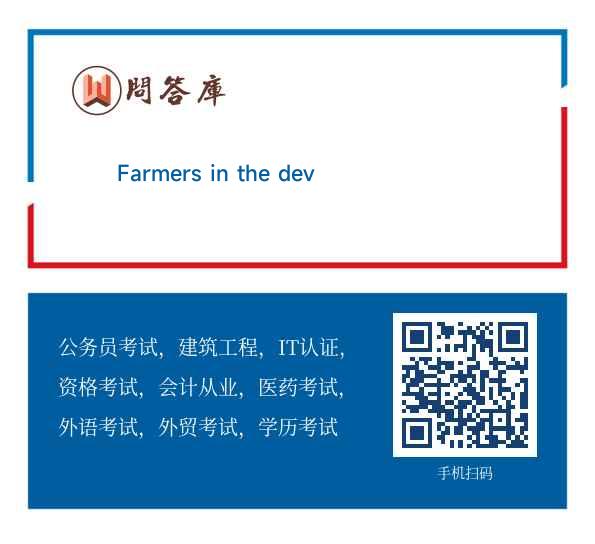Farmers in the developing world would hate price fluctuations. It makes them hard to plan
问题详情
Farmers in the developing world would hate price fluctuations. It makes them hard to plan ahead. But most of them have little 【M1】______ choice: they sell at the price the market sets. Farmers in Europe, the US and Japan are luckier: they receive massive government subsidies in the form. of guaranteeing prices or direct handout. 【M2】______ Agricultural production in most poor countries accounts up to 【M3】______ 50% of GDP, compared to only 3% in rich countries. But most farmers in poor countries grow just enough for themselves and their families. These who try exporting to the West find their goods 【M4】______ whacked with huge tariffs or competed against cheaper subsidized 【M5】______ goods. Agriculture is one of the few areas in which the Third World can compete with. Land and labor are cheap, and as farming 【M6】______ methods develop, new technologies should improve output. This is a 【M7】______ pie-in-the-sky speculation. The biggest success in Kenyas economy over the past decade has been the boom in exports of cut flowers and vegetables to Europe. Poor countries have long suspected that the rich world urges trade liberalization only so it can wangle their way into new markets. 【M8】______ And now Kenya is considered to be slightly over rich to qualify for 【M9】______ the least-developed country status that allows African producers to avoid paying stiff European import duties on selected agricultural products. With trade barriers in the place, the horticulture industry in【M10】______ Kenya may shrivel as quickly as a discarded rose.
【M1】
此题为多项选择题。请帮忙给出正确答案和分析,谢谢!
